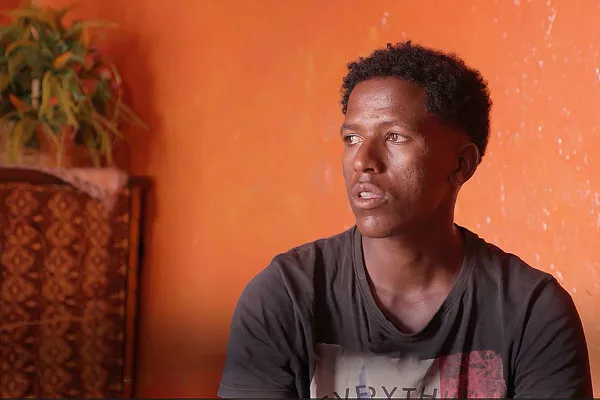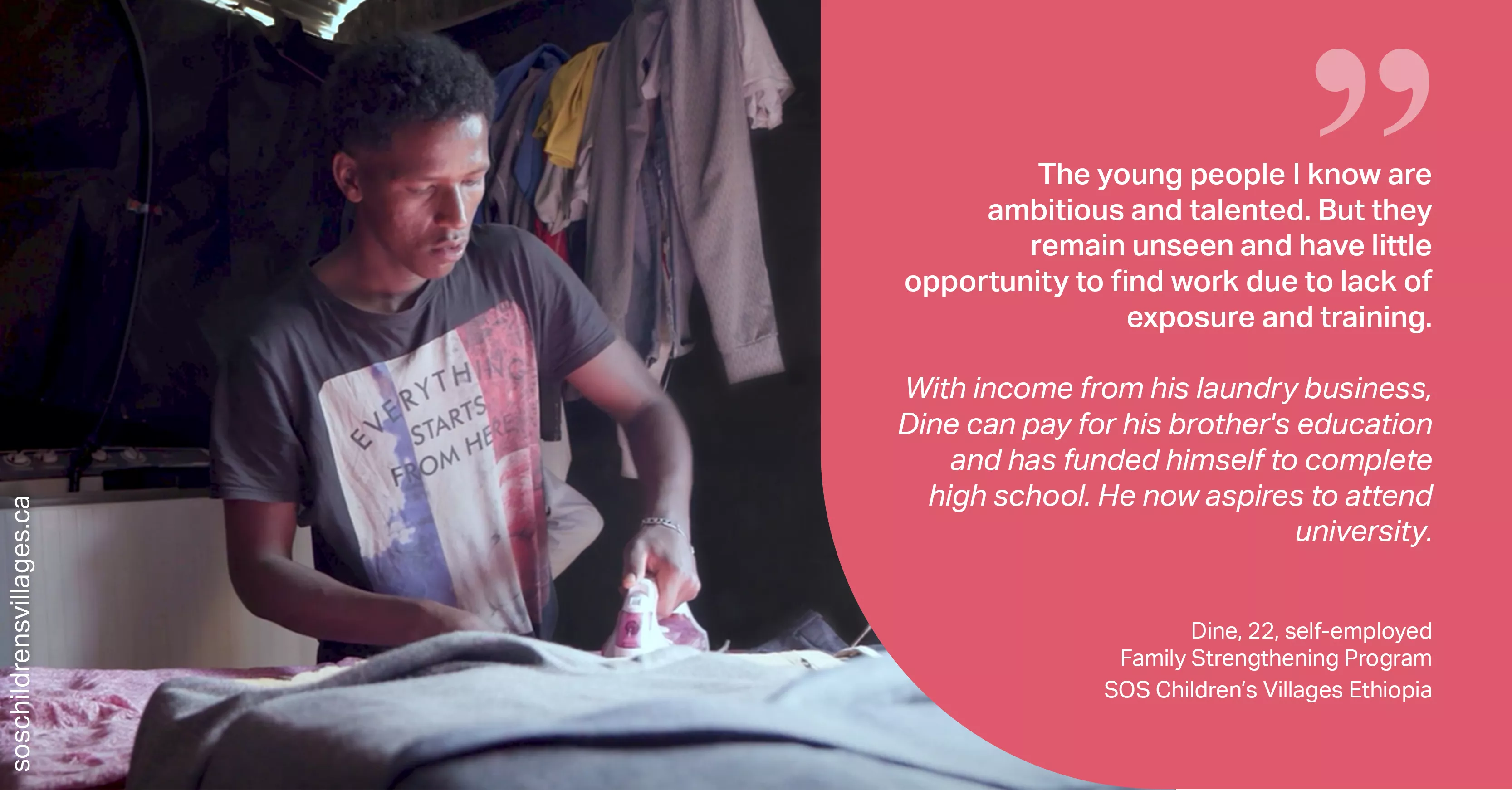Ambitious young entrepreneur in Ethiopia is a role model for his siblings
Dine is convinced that a good life is achievable if he works hard, and his laundry shop in Haramaya Town in Harar, eastern Ethiopia, is his path to prosperity.
As a child, Dine watched his family struggle after his father died, forcing all four siblings out of school. Dine dropped out in grade eight.
The young business owner has become his family’s breadwinner - complementing his mother’s income selling groceries.
“I have been concerned about the wellbeing of my family ever since I was a small boy,” says Dine. “I noticed that there were serious money problems in the house. That is why I decided to work hard.
“When friends that I went to school with bought something, I envied them. If they bought a phone, I also wanted to get a phone but my family could not afford it. It is things like this that have motivated me. I need to earn something to buy the things people get for themselves,” he says.
Dine’s laundry shop is small and cramped. Laundered clothes are stored in plastic shopping bags and stacked on shelves; others hang on the wall. A white washing machine hums in one corner of the shop.

Dine, 22, laundry shop owner in Haramaya, Ethiopia
Training to be self-employed
After he dropped out of school, Dine says he kept himself busy washing cars and scrubbing carpets.
He was inspired to open his shop three years ago after attending a youth employment training program initiated by SOS Children’s Villages Family Strengthening Program.
The program is designed to meet young people where they are – with limited resources and new to business. The training invites young people to see themselves as determinants of their future, not victims of factors beyond their control.
The program's target is young people who did not graduate from high school, like Dine, or those who have graduated but are unemployed.
According to the Ethiopian Statistics Service 2022 data, only 58% of graduates are absorbed in the job market. The rest are idle. While the majority are willing to take up jobs, a mismatch exists between their abilities and the skills needed in the marketplace. The national youth unemployment rate is 23%.
For three months, young people are trained in entrepreneurship, soft skills like communication and leadership, the importance of saving and how to use financial services to their advantage. All this encourages young minds to start a business instead of doing nothing.
Eyob Hailu, the Family Strengthening Program Coordinator, says:
“The number of young people needing support in Harar is very high, and this is a security risk. This is a volatile area, so when young people are busy, then peace is maintained."
“And although not everyone in the training goes on to open a business, the education is a confidence and self-esteem booster, especially for young people living in poverty. And the valuable skills and experience make them employable.”
The laundry shop
After completing training, Dine received capital and a new washing machine to start his business.
He rented space for two years but realized the expense was eating into his profits. Five months ago, he moved his services to his family’s compound.
The laundry opens at 8 a.m. daily until 9 p.m. Dine is the only permanent employee. On busy days, he hires his friends to help.
“I know my customers are satisfied with my washing because some give me tips and others bring more clothes the next time they come, even clothes that are not that dirty,” says Dine.
Dine hangs the wet clothes to dry outside his shop on a rack made of wooden poles. Then, he carefully irons and packs them folded in the customer’s bag.
Supporting family and pursuing an education
With income from the shop, Dine can pay for his brother's education and has funded himself to complete high school. He is now waiting to find out if he has passed his university entry exam.
“I think that I will join the extension program in the evening,” says Dine of his university plans.
“I will work during the day and attend classes from 5 p.m. to 8 p.m. at Haramaya University. If that does not work, I will teach someone else to run it [laundry shop] and I go ahead with my studies. Education is my priority. I want to be wealthy and educated by the time I get a degree - which is in four years. Paying for my education does not worry me these days like in the past. I can pay for myself.”
Shamshi, Dine’s mother, is happy that Dine has created this job for himself.
“Life will get better if we continue living like this. At times, when I need money, he gives me. He also provides for himself and his family. Now, I have hope for the future. I believe in my mind that he will guide his siblings to follow in his footsteps.”
Need for expansion
Dine is determined to be successful in business and life. He is considering expansion, but the lack of space in the current shop keeps him from acquiring a second washing machine.
“I have a lot of work coming in that I request clients to pick up their clothes in four or five days. Sometimes they bring blankets that are too big for the machine to wash and I am forced to clean them outside using a brush. I can only wash a limited number using my hands, which means there are customers who leave disappointed. I need to expand my business to keep everyone happy.”
“I always bless him and pray that he succeeds,” says Shamshi. “He is the one person I have put my hope in. He is strong.”

